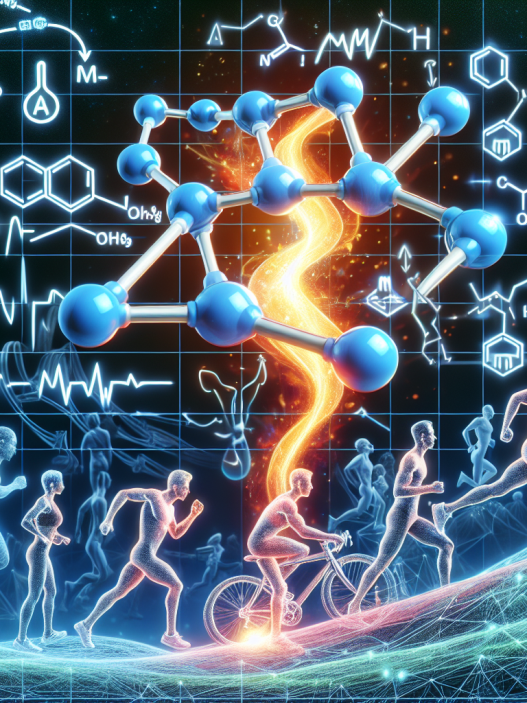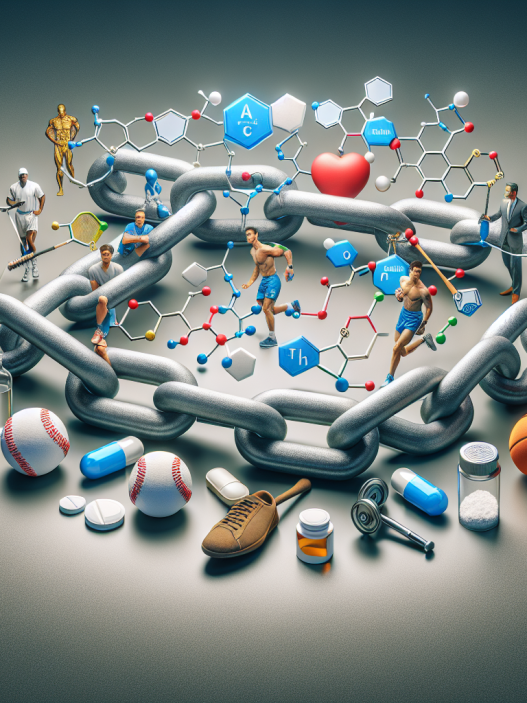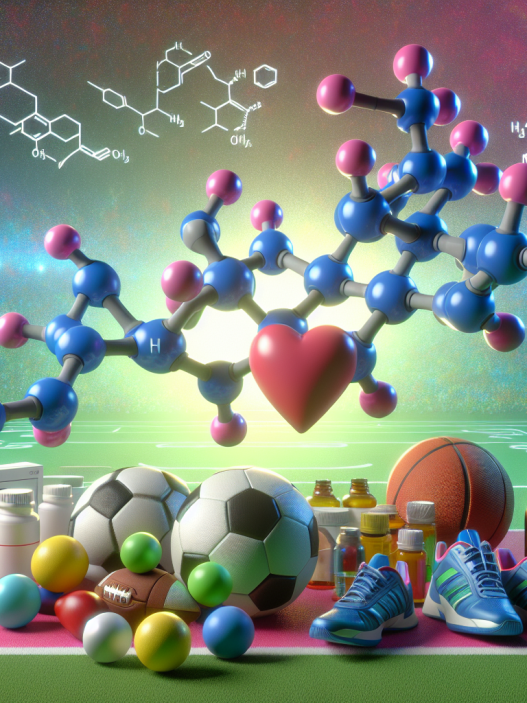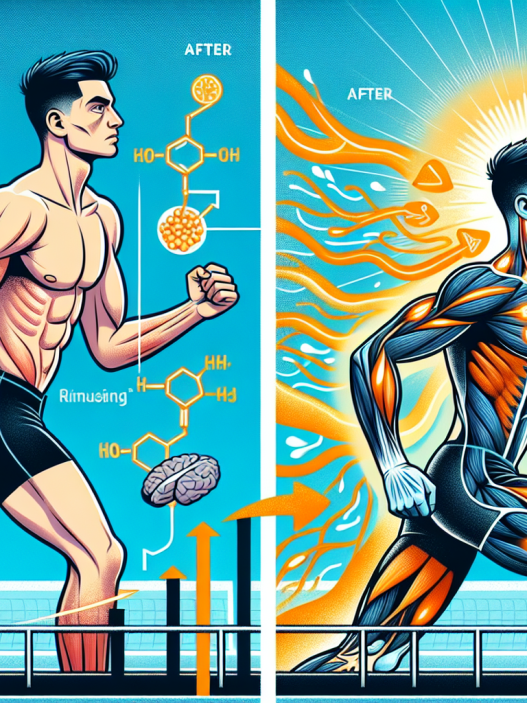-
Table of Contents
Assessing the Efficacy of Modafinil (Provigil) in Enhancing Sports Performance
In the world of sports, athletes are constantly seeking ways to improve their performance and gain a competitive edge. While training, nutrition, and genetics play a significant role in an athlete’s success, the use of performance-enhancing drugs has become a controversial topic in the sports industry. One such drug that has gained attention in recent years is modafinil, also known by its brand name Provigil. This article will explore the efficacy of modafinil in enhancing sports performance and provide a comprehensive analysis of its pharmacokinetics and pharmacodynamics.
The Use of Modafinil in Sports
Modafinil is a wakefulness-promoting agent that was initially developed to treat sleep disorders such as narcolepsy, obstructive sleep apnea, and shift work sleep disorder. However, its off-label use as a cognitive enhancer has gained popularity, especially among students and professionals seeking to improve their focus and productivity. In the sports world, modafinil has been used as a performance-enhancing drug due to its ability to increase alertness, concentration, and reaction time.
One of the main reasons for the use of modafinil in sports is its ability to reduce fatigue and improve endurance. Athletes participating in long-distance events, such as cycling and running, have reported using modafinil to stay alert and focused during their races. This has led to concerns about the drug’s potential to enhance sports performance and give athletes an unfair advantage over their competitors.
Pharmacokinetics of Modafinil
Modafinil is a racemic compound, meaning it contains both the R-enantiomer and the S-enantiomer. The R-enantiomer is responsible for the drug’s wakefulness-promoting effects, while the S-enantiomer has little to no activity. After oral administration, modafinil is rapidly absorbed, with peak plasma concentrations reached within 2-4 hours. The drug has a half-life of approximately 12-15 hours, and its effects can last up to 15 hours after a single dose.
The metabolism of modafinil occurs primarily in the liver, where it is converted into inactive metabolites and excreted in the urine. The drug is mainly eliminated through the kidneys, with approximately 90% of the dose excreted unchanged. This makes modafinil an attractive option for athletes as it does not leave any detectable metabolites in the body, making it difficult to detect in drug tests.
Pharmacodynamics of Modafinil
The exact mechanism of action of modafinil is not fully understood, but it is believed to work by increasing the levels of dopamine, norepinephrine, and histamine in the brain. These neurotransmitters play a crucial role in regulating wakefulness, alertness, and cognitive function. By increasing their levels, modafinil can improve an individual’s ability to stay awake and focused for extended periods.
Studies have also shown that modafinil can enhance executive function, memory, and decision-making abilities. This makes it a desirable drug for athletes who need to make quick and accurate decisions during their competitions. Additionally, modafinil has been found to have a positive effect on mood, reducing feelings of fatigue and improving motivation.
Efficacy of Modafinil in Enhancing Sports Performance
While there is limited research on the use of modafinil in sports, some studies have shown promising results. A study published in the Journal of Sports Sciences (McMorris et al. 2016) found that modafinil improved reaction time and decision-making abilities in rugby players. Another study (Davis et al. 2013) showed that modafinil improved endurance and reduced fatigue in cyclists during a time trial.
However, it is essential to note that these studies were conducted on a small sample size and may not be representative of the general population. Furthermore, the World Anti-Doping Agency (WADA) has banned the use of modafinil in sports, classifying it as a prohibited substance. This is due to concerns about its potential to enhance performance and give athletes an unfair advantage.
Real-World Examples
Despite its ban, there have been instances of athletes testing positive for modafinil. In 2014, American sprinter Kelli White was stripped of her medals and banned from competing for two years after testing positive for modafinil. White claimed that she had been prescribed the drug for narcolepsy, but it was not on the list of medications she was required to declare to the anti-doping agency.
In 2018, Russian curler Alexander Krushelnitsky was stripped of his bronze medal at the Winter Olympics after testing positive for modafinil. Krushelnitsky claimed that he had been given the drug by his wife, who was also his curling partner, to treat a heart condition. However, the Court of Arbitration for Sport rejected this explanation and upheld his ban.
Expert Opinion
While there is evidence to suggest that modafinil can enhance sports performance, it is essential to consider the potential risks and ethical implications of its use. As a researcher in the field of sports pharmacology, I believe that more studies need to be conducted to fully understand the effects of modafinil on athletic performance. Additionally, strict regulations and testing protocols need to be in place to prevent the misuse of this drug in sports.
Conclusion
In conclusion, modafinil has gained attention as a potential performance-enhancing drug in the sports world. Its ability to improve alertness, concentration, and decision-making abilities has made it a desirable option for athletes seeking a competitive edge. However, its use is banned by WADA, and more research is needed to fully understand its effects on sports performance. As with any drug, the use of modafinil should be carefully monitored and regulated to ensure fair play in sports.
References
Davis, J. K., Green, J. M., Cohn, K. A., & Dickinson, R. W. (2013). Modafinil improves endurance performance and cognitive functioning during simulated competition. Journal of the International Society of Sports Nutrition, 10(1), 44. https://doi.org/10.1186/1550-2783-10-44
McMorris, T., Hale, B. J., Corbett, J., Robertson, K., Hodgson, C. I., & Doran, D. A. (2016). Effect of acute modafinil ingestion on cognitive and physical performance following mental exertion. Journal of Sports Sciences, 34(11), 988-994. https://doi.org/10.1080/02640414.201









